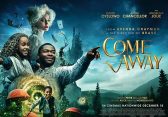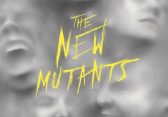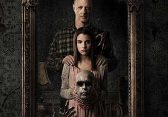13th February 2018 (UK)
T'Challa, after the death of his father, the King of Wakanda, returns home to the isolated, technologically advanced African nation to succeed to the throne and take his rightful place as king.
Ryan Coogler
Chadwick Boseman, Michael B. Jordan, Lupita Nyong'o
134 mins
A mere 10 years ago, the juggernaut of the Marvel Cinematic Universe (MCU) only contained one film and a dream of box office dominance. Skip forward a decade and four of the entries are in the top 20 highest grossing movies of all time and there’s a new addition into the franchise every few months, with the upcoming culmination of Avengers: Infinity War promising to shake things up to an unprecedented level. The MCU sets a new benchmark with their latest release Black Panther, a film in which the cast are primarily African-American and one that celebrates culture, tradition and the importance of identity.
Returning to his home of Wakanda after the death of his father King T’Chaka, Prince T’Challa (Chadwick Boseman) takes his rightful place on the throne. It’s not long before his power is challenged by a dangerous outsider known as Erik Killmonger (Michael B. Jordan) with a devastating secret that threatens to tear Wakanda apart as well as putting the entire world in jeopardy.
From the outset, it’s clear Black Panther is unlike any previous Marvel offering. Substituting the metropolitan cities dominated by skyscrapers and the Avengers Tower for thick jungles and run-down ghettos, the film is less concerned with spectacle than its fellow team members entries.
It’s not until we see Wakanda for the first time that the real flavour of Black Panther can be felt. It is a hidden land, masked to look like a third world country with minimal resources. But through the trees lies a world that is light years ahead in technological advancements due to its reliance on a material called Vibranium. Modern technology clashes with centuries-old traditions is inhabited by various tribes who follows their own sets of laws and rules.
As I said, this is unlike any other Marvel movie. Its respect for African culture is almost unmatched in mainstream Hollywood movies, save for The Lion King – which has more than a few similarities to Black Panther, I must add. More importantly, Black Panther is the first black superhero since Wesley Snipes’ Blade all the way back in 1998. Of course, this is a far more accessible hero that can be looked up to by younger audiences; as bad ass as Blade is, as a half-vampire half human he’s hardly a role model for youngsters.
Chadwick Boseman is just the right amount of humble as King T’Challa, but strangely is the weakest link of the stellar cast. It’s the villains who really shine in Black Panther, with Michael B. Jordan, who has previously appeared in director Ryan Coogler’s other two films, the powerful drama Fruitvale Station and Rocky Balboa sequel Creed, giving one of the best performances of his young career as the on-the-nose-named Erik Killmonger. The heart of his hate is given valid enough reasons to beat, and his grievances regarding oppression are delivered with such passion by Jordan that even though this is a work of fiction, the real-world issues that season Black Panther are ones that close to his heart. It’s due to this intensity that I found myself rooting for Killmonger far more than T’Challa, who could have done with a little more spirit when necessary.
Killmonger is not the only threat present to Wakanda though: the always entertaining Andy Serkis has an absolute ball as the one-armed arms dealer Ulysses Klaue who knows more about Wakanda and their potential than they would like. While Boseman remains largely calm and collected and Jordan is a seething antagonist hellbent on revenge, Serkis is joyous as Klaue and looks to be having a tremendous amount of fun as he gleefully destroys various objects with his weaponized arm.
Having multiple villains in one picture can be a risky move, as Spiderman 3 discovered with its trio of bad guys in the form of Sandman, Venom and Green Goblin, but Black Panther’s mischief makers succeed by cautiously cooperating while posing their own individual threats to Wakanda and never treading on each other’s toes.
The importance of the women of the cast cannot be understated either. Danai Guirira is exceptional as Okoye, the fiercely loyal bodyguard of T’Challa and leader of the Dora Mijale, Wakanda’s all-female special forces. Lupita Nyong’o’s Nakia excels as T’Challa’s former lover and current member of Dora Mijale, while Letitia Wright livens up the scenes she appears in as the King’s technology savvy sister Shuri.
Martin Freeman phones in an initially unconvincing American accent as CIA agent Everett Ross, and man of the moment Daniel Kaluuya of Get Out fame convinces as W’Kabi, a man who is conflicted between doing what’s right for Wakanda or what’s right for himself. It’s never a bad thing to see Forest Whittaker, and here he plays a small but pivotal role as Zuri, an elder statesman in Wakanda to round off the main cast.
Black Panther is a refreshing change of pace and tone for Marvel, as it doesn’t rely on excessive action set pieces to get by. The script, written by Coogler and Joe Robert Cole, thoroughly fleshes out all the main players to deliver one of the best origin stories since Iron Man. That’s not to say there isn’t any noteworthy action present – a frantic car chase through the narrow streets of Korea and a James Bond-esque casino sequence are highlights – but the focus is firmly on character development rather than an explosive extravaganza. Its music score and soundtrack contain flourishes of rapper Kendrick Lamar’s curation, but it’s rap and ‘trap’ influences are never overpowering and instead the majority of the music contains tribal drums and native instruments to South Africa.
Bizarrely though, a few days removed from seeing Black Panther, and with all the positives to say about it, I have no desire to return to Wakanda any time soon. Whether this is due to my overall indifference to the superhero genre or the fact the story was so well told that I don’t need to watch again for clarification is up for debate, but I’m content with just the one viewing. I noticed the CGI was a little choppy in places, particularly in the aforementioned casino scene, and although the performances are strong I feel the hype behind Black Panther raised expectations to an unobtainable level.
Regardless, Black Panther is an important step forward not just for the MCU but for film making in general. It is a film with its own unique identity while being respectful and celebratory of a culture that is barely represented on screen and its messages of not being defined by your past are ones worth listening to by all.
Strong backstory
Even stronger villains
A respectful and colourful look at African culture
Left me feeling a little flat
CGI isssues


























